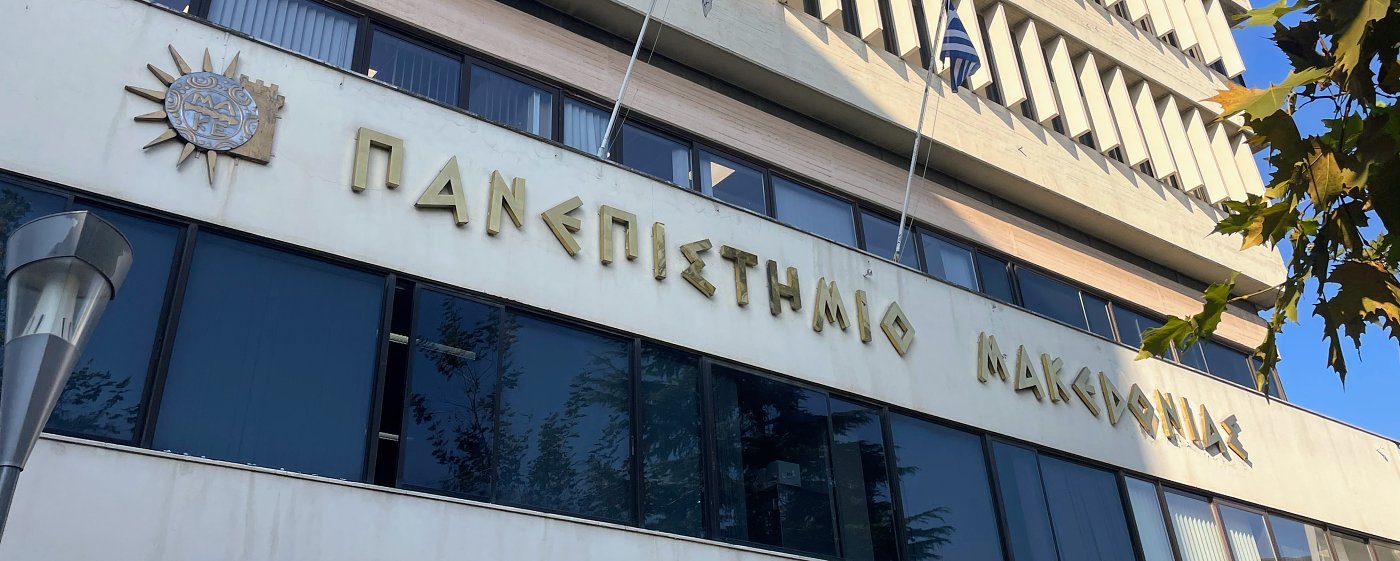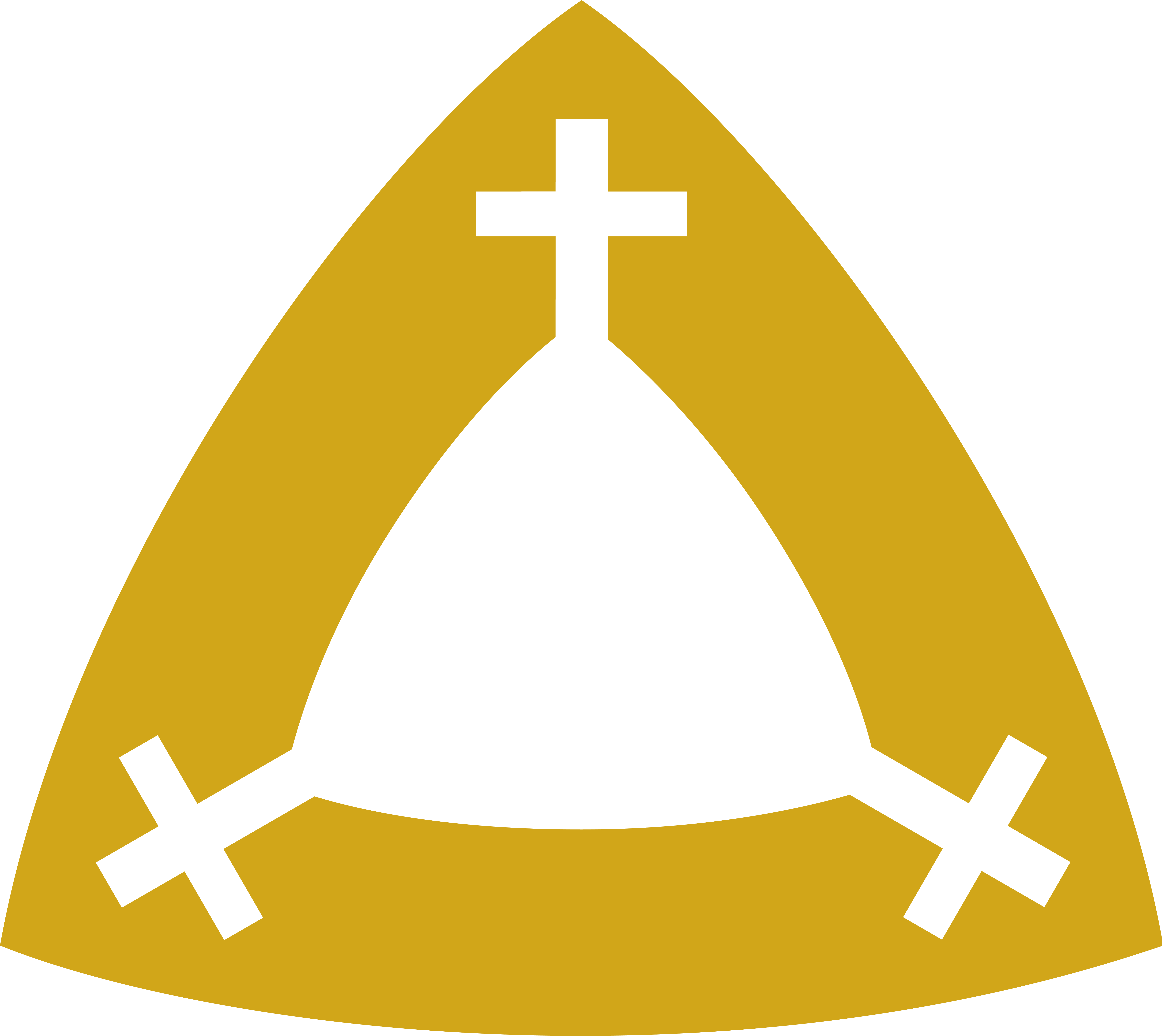Erasmus+ mobility in the heart of Thessaloniki

UOM is a public university based in Greece's second-largest city, Thessaloniki. It was founded in 1948 as the School of Higher Industrial Studies and is now one of the most important institutions of higher education in Greece. The university consists of four faculties (eight departments) offering a wide range of study programmes in the fields of economics, finance, international and European studies, political science, applied informatics, education, social policy, and musicology. Currently, UOM enrols approximately 15,000 students in bachelor's degree programmes and nearly 4,000 in master's and doctoral programmes.
International cooperation is an important pillar of its development. The university is a long-term and active partner of the Erasmus+ programme, under which it accepts and sends students and staff from/to all over Europe, but it is also part of non-European grant schemes. Teaching for foreign students is mainly conducted in English, which facilitates integration and promotes a multicultural environment.
The agenda of international relations at UOM is overseen at the university level by the International and Public Relations Department, but student mobility is administered primarily through the Erasmus+ office. Maria Chanioti, Sandy Tsagka, and Aggelika Koutsi provided an opportunity to compare the activities of UOM and KU in the area of student and staff mobility. At UOM, incoming student mobility (approximately 100 per academic year) and outgoing student mobility (approximately 250 per academic year) dominate. Compared to KU, these numbers are higher, but if we compare the number of students at UOM (approximately 19,000) and KU (approximately 3,700), KU is comparable to UOM in terms of the ratio of student mobility. Although UOM does not offer study programmes conducted entirely in English, it offers a wide range of courses taught in English, which is reflected in greater interest in studying within the Erasmus+ programme. When it comes to the administration of outgoing student mobility, the selection process is entirely the responsibility of the individual faculties. KU is better than UOM in terms of staff mobility (teaching/training), as it sends out around 120 staff members per year, while UOM sends out only 50. A limiting factor at UOM is that only employees who have worked at UOM for at least 5 years are eligible for mobility.
UOM confirmed its interest in cooperation with KU, particularly in the areas of special education (Syriopoulou-Delli Christine) and lifelong learning (Training and Lifelong Learning Center). Similarly, staff from the newly established Student Counselling and Support Center were interested in the activities of the Counselling Center at KU and expressed interest in implementing mobility training within these KU workplaces.
In addition to the issue of mobility, there was room for discussion and comparison of higher education systems in Greece and Slovakia, as well as political and economic developments in both countries. The discussions revealed that higher education at Greek universities is less flexible than in Slovakia. The state centrally manages university admissions, placing students based on national exam results (Panhellenic Exams). State public universities are free of charge for domestic and EU students at the bachelor's level. Masters programmes may have fees. Bachelor's studies usually last 4 years, master's 1-2 years (depending on the field), and doctorates 3 or more years. However, studies often last significantly longer, with minimal student transfers between faculties or universities. The grading system is fully compatible with ECTS, and most courses have a high number of credits (e.g., 5–6 ECTS). Students have access to a strong social support system (e.g., free textbooks, meal subsidies, and accommodations for the socially disadvantaged). However, during mobility, there was a student strike at the university due to the current government's curtailment of these benefits. Greek universities can be described as very social, with active student associations, especially through various cultural events, but protests are common. Slovakia prioritises academic performance and practice over activism.
The UOM campus, which consists of a complex of interconnected buildings, resembles a maze but offers modern teaching facilities, a library, sports facilities, and cultural amenities. The library (open Monday to Saturday from 8:00 a.m. to 8:00 p.m.) provides space for study and access to physical and electronic resources. Our guide through the university library was Fotini Polymeraki, who works with the library's digital collections. The library director also accepted a donation to the library's collection, a publication entitled The Bible in Pictures by Vincent Hložník.
The city itself is a crossroads of cultures, where history, culture, and modern architecture intertwine. Thessaloniki, or Thessaloniki in Greek, was named after Alexander the Great's half-sister, although it was founded by one of his generals and successors, Cassander (315 BC). The presence of Alexander the Great is evident not only in the city's exterior, particularly in the form of his statue on the local promenade, but also in the Museum of Contemporary Architecture, where his portrait by Andy Warhol dominates the private collection.
In the 9th century, Thessaloniki was an important cultural and administrative centre of the Byzantine Empire and also a city with a large Slavic population. It plays a key role in the lives of Saints Cyril and Methodius, as it was here that the two brothers were born, grew up, and received their education, which they later used in their missionary work among the Slavs. Today, Thessaloniki is home to the Basilica of Saints Cyril and Methodius (Ἅγιοι Κύριλλος καὶ Μεθόδιος), a Greek Catholic church that commemorates their Thessalonian roots and spiritual heritage.
Today's Thessaloniki can also be called a student city, as it is home to Greece's largest university, Aristotle University of Thessaloniki, as well as other smaller private higher education institutions. As a result, more than 60,000 university students live in the city, which is particularly evident in its bustling social life.
UOM is an inspiring place for studying and exchanging experiences, combining the tradition of Greek scholarship with modern European trends in education, research, and internationalisation.

